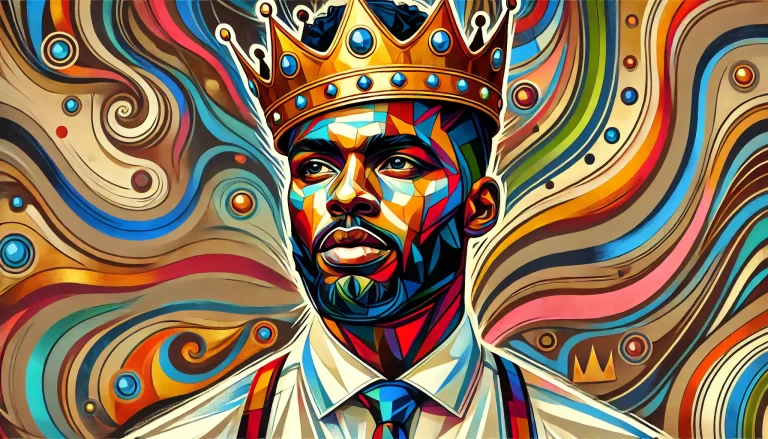Understanding the Biblical Principle of Identity
Too often, we go through life without truly knowing who we are. Why? Because we allow others to define our identity—whether it’s family members, friends, teachers, supervisors, or society as a whole. We feel constant pressure to live up to the world’s standards, and when we fall short, we become frustrated, ashamed, and even question our worth. Each failure to meet these external expectations chips away at our self-confidence, leaving us feeling inadequate. We chase an identity based on what others say we should be, not on who we truly are.
Society’s standards are not only impossible to keep up with but also ever-changing. What’s considered valuable or acceptable today may shift tomorrow, leaving us stuck in a race we can never win. The result? We feel behind in life, striving to meet ideals that are always just out of reach. This constant pursuit leaves us drained, uncertain of our place in the world, and far from the person God created us to be. To break this cycle, we have to shift our focus away from what the world says and anchor our identity in the unchanging truth of who God says we are.
What is Identity?
Identity is about knowing who you are as a creation of God. It’s not shaped by what you achieve, your title, or how others see you, but by who God says you are. You are made in the image of God, intentionally designed and deeply loved. This concept grounds your sense of self and reminds you that your worth is not defined by circumstances or the world but by God’s perspective of you.
In the creation story, God spoke everything into existence with His word. Repeatedly, the text says, “God said…” as He commanded each part of creation to come forth. When God wanted grass, plants, and vegetation, He spoke to the earth: “Let the earth bring forth grass, the herb yielding seed, and the fruit tree yielding fruit” (Genesis 1:11-12). When He desired the sun, moon, and stars, He spoke to the firmament: “Let there be lights in the firmament of the heaven” (Genesis 1:14). When He created fish and sea creatures, He spoke to the waters: “Let the waters bring forth abundantly the moving creature that hath life” (Genesis 1:20). For the animals, He again spoke to the earth: “Let the earth bring forth the living creature after his kind” (Genesis 1:24).
However, when it came to humans, God did something entirely different. He didn’t speak to the earth, water, or the heavens—He spoke to Himself: “Let us make man in our image, after our likeness” (Genesis 1:26). This reveals the unique and intentional design behind humanity, created in God’s own image and set apart from the rest of creation. Humans were given the special responsibility of dominion over all other creatures, highlighting their unique relationship with their Creator and their purpose on earth.
Genesis 1:27 states, “So God created mankind in his own image, in the image of God he created them; male and female he created them” (Genesis 1:27). This verse reveals that we are all created to reflect God’s character and nature. Being made in God’s image means that our worth, value, and purpose come from Him, reflecting His goodness, and giving our lives meaning and direction beyond what the world says.
How Identity Reflects God’s Character
The principle of identity directly reflects God’s character—His creativity, intentionality, and unconditional love. God’s creation of each person was intentional, purposeful, and unique. In Psalms, it reads, “For you created my inmost being; you knit me together in my mother’s womb. I praise you because I am fearfully and wonderfully made; your works are wonderful, I know that full well” (Psalm 139:13-14). We are not accidents; we were thoughtfully crafted by God, intricately designed to reflect His beauty and complexity.
God’s identity as Father and Creator is evident in how He defines our uniqueness. Being made in His image calls us to reflect His attributes—love, kindness, righteousness, and justice. Identity means living out who we are in God by embracing His qualities in our everyday lives. As we grow in our understanding of our identity in Him, we begin to reflect God’s character more fully, influencing how we interact with the world and the people around us.
Living Out Your Identity
Understanding your biblical identity is transformative. When you know who you are in God, it changes the way you live, the way you approach challenges, and how you see yourself. It means letting go of the need to define yourself by worldly standards, accomplishments, or external validation. Instead, you anchor yourself in God’s truth about who you are.
One powerful example of biblical identity is found in the story of Gideon. Gideon saw himself as weak and insignificant, yet God called him a “mighty warrior” and used him to deliver Israel from its enemies (Judges 6-7). Gideon’s initial self-perception didn’t match God’s view of him, but as he stepped into his God-given identity, he fulfilled the purpose God had for him. This shows that even when we doubt ourselves, God sees our true potential and calls us to live according to His perspective, not our own.
Another example is Moses. When God called him to lead the Israelites out of Egypt, Moses initially doubted his abilities and identity, questioning why he would be chosen (Exodus 3:11-14). However, God affirmed Moses’ identity and reminded him that his worth and power came from being chosen and equipped by God. This illustrates that our identity in God often goes beyond our immediate understanding, but as we trust in Him, He equips us for the tasks ahead.
How to Live Out Your Identity
1. Meditate on Biblical Affirmations
Spending time meditating on biblical affirmations helps you internalize God’s truth about who you are. By focusing on scriptures that declare your value, purpose, and identity, you can replace the lies of the world with the truth of God’s Word. Regular meditation strengthens your understanding of your worth as someone created in God’s image and reinforces your confidence in living out His plan for your life.
2. Follow Christ’s Model
God came into the world in the form of Jesus Christ, not only to restore our broken relationship with Him but also to model righteous living. Jesus showed us what it means to live a life of love, integrity, and service to others. As you follow His example, you align yourself with the identity God has given you, reflecting the character of Christ in your actions. Jesus lived with a clear purpose, and we are called to do the same by walking in obedience to God’s will.
3. Pray for Clarity and Guidance
Prayer is a powerful tool for staying connected to God and seeking His wisdom. When you ask God to reveal areas where your life is out of alignment with your true identity, He provides clarity and direction. Regular prayer deepens your relationship with God and helps you navigate life’s challenges while staying grounded in who He says you are. This intentional communication with God keeps your heart and mind open to His transformative guidance.
4. Surround Yourself with Supportive People
Who you surround yourself with matters. Seek out relationships with people who reflect God’s love and encourage you to be your true self in Him. A strong, supportive community of faith can help you stay rooted in your identity and remind you of God’s truth when you face doubt. These relationships are essential for accountability, growth, and mutual encouragement in living out your faith.
5. Practice Gratitude for Who You Are
Gratitude is a powerful practice for embracing your identity. Regularly thank God for how He has uniquely created you, including your strengths, talents, and even the challenges that help shape your growth. When you express gratitude, it shifts your focus away from comparison and self-doubt, allowing you to fully accept who you are in Christ. This practice helps you live with confidence and joy in the identity God has given you.







